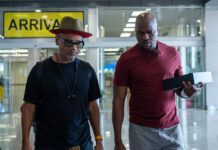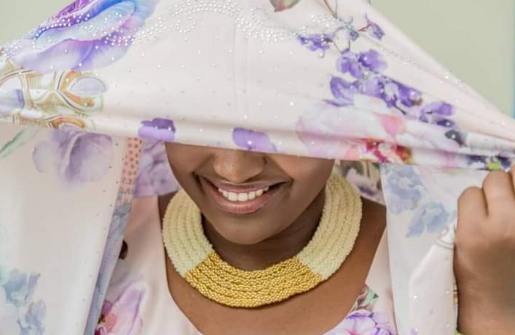
The Bahororo community is set to hold an event dubbed “Oweitu Mpororo Cultural Festival,” a cultural event that aims at reviving the Mpororo diversity and strong cultural heritage. The event will occur on Sunday, August 18, 2024, at 2:00 PM at Silver Springs Hotel in Bugolobi, Kampala, running under the theme Integrating Mpororo Social Heritage.
While appearing on local television, Justus Karuhanga, the director and promoter of the Oweitu Mpororo Cultural Co. Ltd., said that the aim of this event, which is the first of its kind, is to revive the Mpororo culture.
“We are trying to revive the Mpororo cultural heritage. We have a lot that we are going to experience on that day. We are not Africans just because we are dark. There are other dark people all over the world. It all starts with your tradition, culture, music, events, and way of life. We look at preserving our culture, reviving it, and recording it for prosperity,” Karuhanga said.
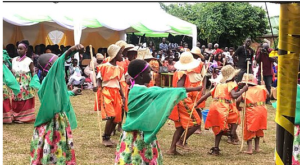
Karuhanga added that Mpororo is one of the biggest communities and that it cannot even be limited by the geographical boundaries since it cuts across a big area across East Africa.
“Mpororo is one of those communities that are on this continent. It is no longer defined by geographical boundaries because it limits it. Today geography limits us to the current day Ntungamo, Rukungiri, parts of Kabale, parts of Northern Rwanda, parts of Tanzania, but that is not who we are. We are limitless in terms of boundaries. So it is now the tradition, culture, way of life, and language. Even the United Nations has an organization called UNESCO that talks about cultural and traditional preservation, and that is what we are on,” he added.
According to Dennis Abaho Katutsi, the chairman of Oweitu Mpororo Cultural Co. Ltd., Mpororo was a big kingdom in the ancient years, but it kept dying out, so they have come up to revive it through the Mpororo Connect.
“Mpororo was the biggest kingdom in the 1720s, but it kept on reducing. Even the people no longer know that they are Bahororo, so we are trying to revive the culture. We have been calling ourselves Banyankole, but we are Bahororo,” he said.
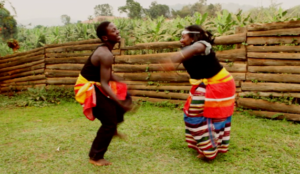
Karuhanga reechoed that it is unfortunate that culture and tradition are not well kept because they are passed on by word of mouth; therefore, they will phase out if not revived and preserved through cultural heritage.
“Traditionally, all Africans, and not just the Bahororo or Ugandans, do not record their things. Every piece of information touching our culture or tradition is orally transmitted. Anything that is orally transmitted, every generation will drop some useful information. There are words we do not know. When you read the dictionary that the president authored in Runyankole-Rukiga, or Ruhororo, you will be shocked at how many words you have never heard about yet you are a true Muhororo/Mukiga. Any society that loses its tradition or culture stops being who they are and stops being authentic. God did not make mistakes in trying to diversify us. Cultural and traditional diversity is as useful as any diversity in the world. It is what puts the spice in the world,” Karuhanga stressed.
According to the event organizers, the lovers of cultural heritage will part with UGX 30.000 for bronze, UGX 500.000 for silver, a table for four people, and UGX 1M for a table for eight people to access the event. There will be a creation of networks amongst the Bahororo world-wide, teaching the young generation about their beliefs/customs and self-awareness. The event promises entertainment from musicians who originate from Mpororo Land, Abevugi, crane traditional performers, and Cyusa Ibrahim from Kigali, Rwanda.
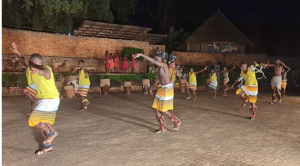
The Hororo or Bahororo are a Bantu-speaking ethnicity mainly residing in the north of the former Kigezi district in southwestern Uganda. In 1905, they were described by a British officer as “quiet, inoffensive people” who owned cattle. They are made up mostly of the Hima ethnic group and the Iru ethnic group. They reside mainly in Rujumbura in southwestern Uganda and are related to the Banyankole, Banyoro, Batooro, Songora, and Tutsi peoples, respectively. Rujumbura was ruled by the BeeneKirenzi sub-clan, with Omukama Karegyesa as their last king.
The Bahororo speak a dialect of Nkore-Kiga, Ruhororo. They are subdivided into clans that are similar to those of the kingdom of Ankole. Unlike Ankole, which was ruled by the Hinda clan, Mpororo was led by the Bashambo clan.


